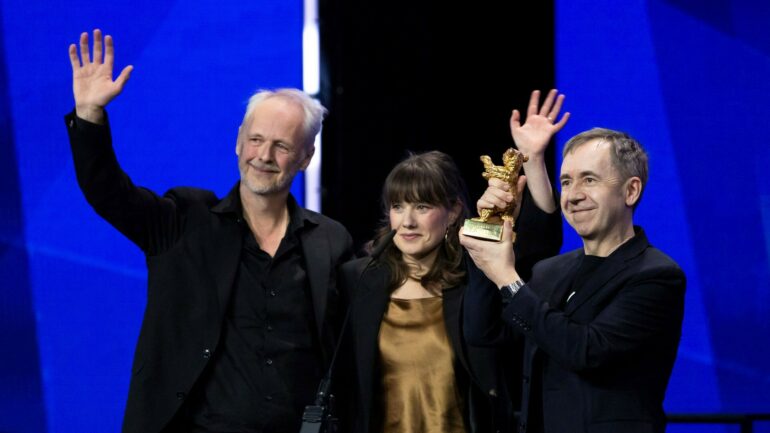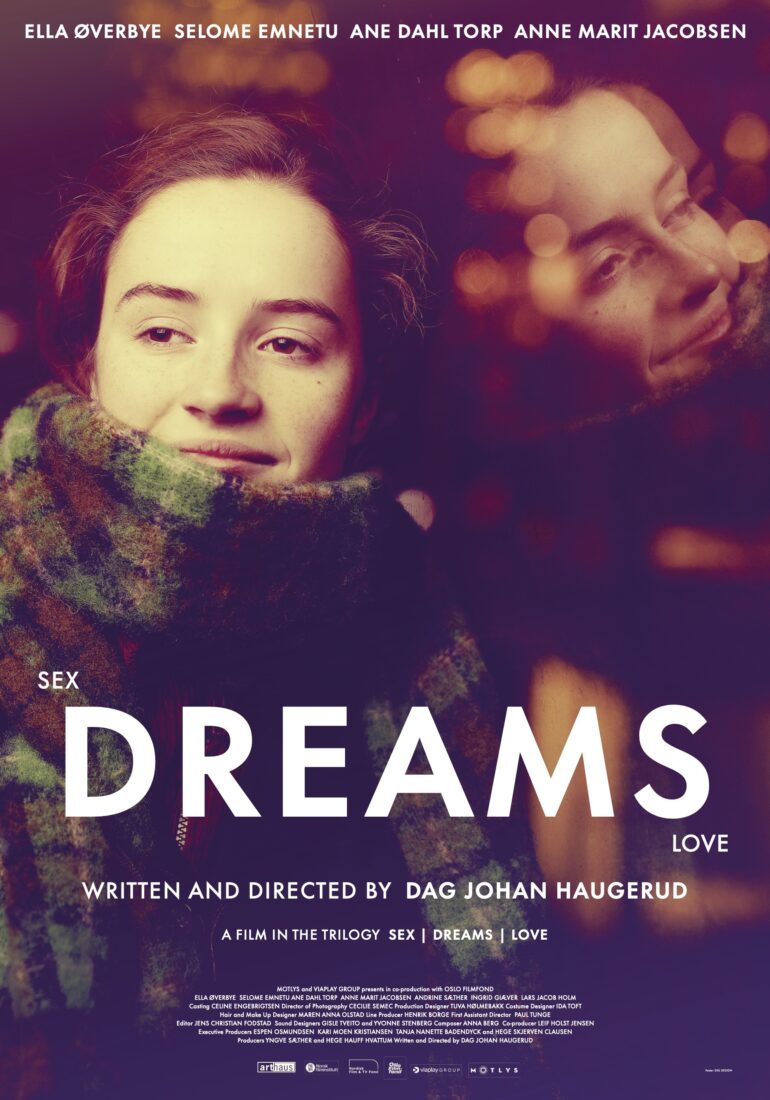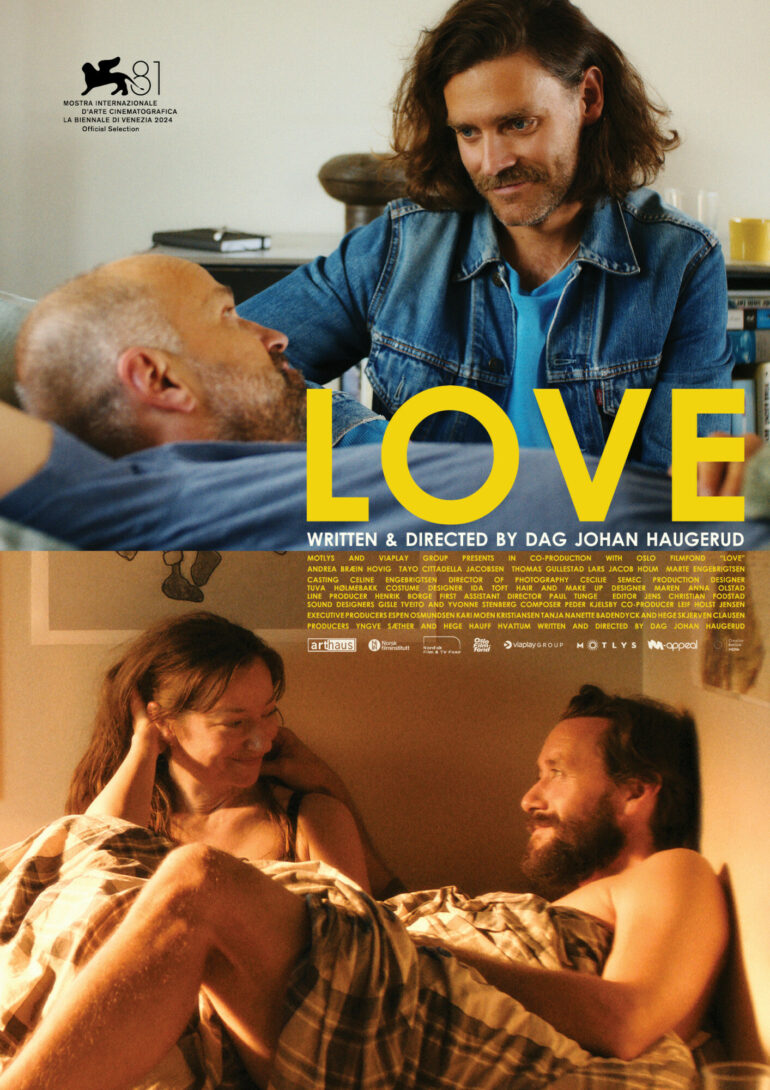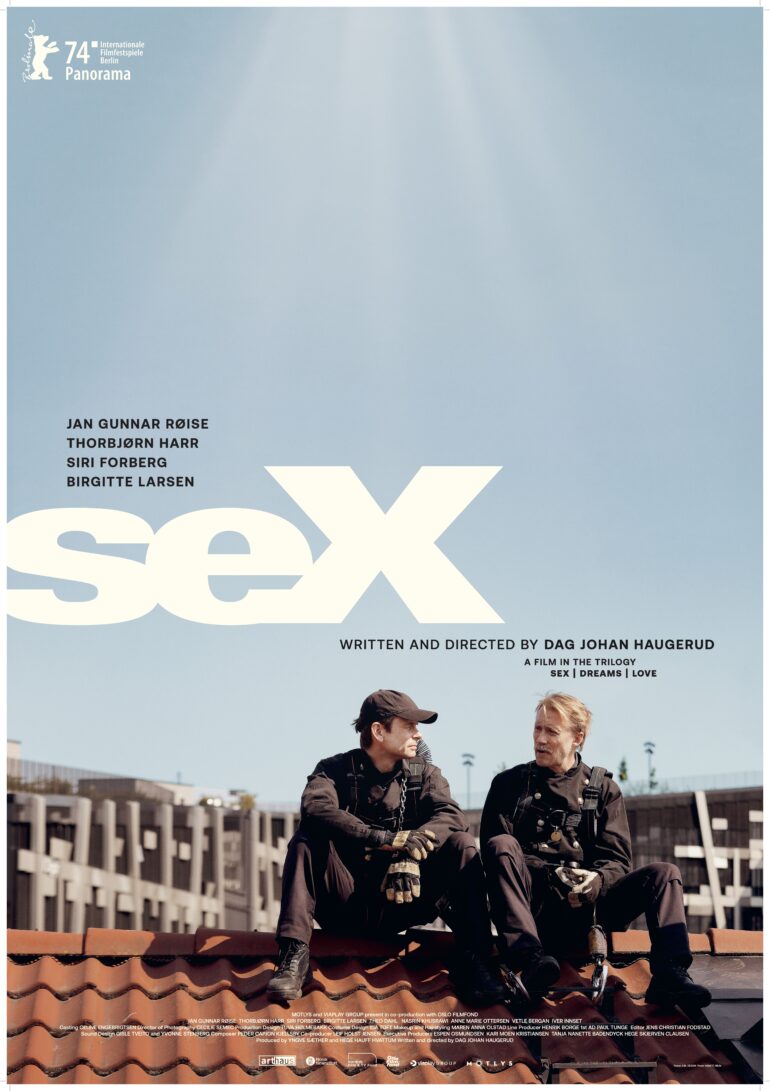Written by: Geoffrey Macnab
23.02.25
Norwegian writer-director Haugerud’s trilogy started at the Berlinale last year with Sex. This year Dreams captivated not only distributors and critics, but the festival jury led by Todd Haynes.
When Norwegian filmmaker and author Dag Johan Haugerud proposed his Sex Dreams Love (Sex Drømmer Kjærlighet) trilogy of separate but interlinked feature films, there was scepticism. The Motlys producers’ aim of premiering the features one after another at Berlin, Cannes and Venice was considered wildly ambitious. Only Krzystztof Kieslowski had managed such a feat before, with his Three Colours trilogy - and that was 30 years ago.
Sales agents were unwilling to commit to all three films. (In the end, Berlin-based m-appeal took on international rights to the films when other bigger companies weren’t ready to take the leap).
Not everything went smoothly. Sex won the Nordic Council Film Prize and was chosen for the Berlin Panorama last year, but Cannes turned down Dreams. In the meantime, Love surfaced in competition in Venice last autumn.
Whatever happens now, the trilogy (supported by Norwegian Film Institute, Nordisk Film & TV Fond and Viaplay) can be considered a triumph. The award of the Golden Bear for Dreams is the supreme vindication for a series of films that have already sold all over the world and won multiple accolades. In addition to the Golden Bear, Dreams won the FIPRESCI Prize from international critics and the German Arthouse Cinema Award.
Dreams (Sex Love), as the new feature is now called, is as much about adolescence and literary ambition as it is about sex and romance. The main protagonist Johanne (played by the precocious Ella Øverbye) is a 17 year old who falls in love with her French teacher, Johanna (Selome Emnetu) She keeps a journal, chronicling her innermost feelings in startlingly frank fashion. This is read by her mother and grandmother. They’re shocked and fascinated. Both are reminded of their own youthful love lives. They are struck by how well Johanne writes, but can’t work out what is real and what is fantasy.
Haugerud spoke to Nordisk Film & TV two days before his new film won top prize at the 75th Berlin Film Festival.
What has it been like being back in Berlin? And how does Competition compare to Panorama?
It’s very nice being back, because it is a nice and very friendly festival to be a part of. Being in the Competition is quite different from being in Panorama in the sense of there being more interest around the film, maybe a bit more pressure also. But when that is said, this film has already been premiered in Oslo [it was released in October by Arthaus] - so that takes the pressure off a bit.
Does it matter which order the films are seen in?
They were always meant to be seen in the order they were written, but then, when Cannes didn’t want Dreams and Venice picked up Love, the order was messed up. But later on, I heard people telling me they had seen the films in a different order, and that has made sense to them in another way.
There’s a strong Nordic tradition of auteur directors, from Ingmar Bergman to Lars von Trier, dealing with sexuality Do you see yourself as fitting into that sometimes heavy tradition?
I probably see myself as an auteur, because basically I am a novelist. I write novels as well. That’s my view on the world - and that is probably what auteurism is about. I wouldn’t be interested in making a film from a script somebody else had written. As for being heavy-handed with these themes, that is not just a Nordic tradition. In a lot of the history of film, sex is often treated as something dangerous and dark - and something that is punished in the end. One of my points for making this trilogy was to say that it is not dangerous to have sex, and it is not dangerous to talk about sex - to take the darkness away from it in a way.
There isn’t very much sex in Dreams, but you do have a lot of knitting. Why that emphasis?
It [the knitting] was a way for her [Johanne] to get to know the teacher. It was also an idea I had for the production design, that it should be filled with wool. Very warm and very soft. We looked at a lot of David Hamilton pictures to see how he uses the soft lenses.
But you also deal with questions of age, consent and power relations.
I couldn’t ignore that part, because after #MeToo it is something we all think about when we hear about these things. I haven’t spoken to many people about this, but if the teacher had been a man, it would have been very different, obviously. It would be a case for the police, probably - I think that was very necessary to show. All these grey areas are very complicated and very interesting. The teacher also says she has been abused in a way, because she has been an object of desire without knowing it.
What appeals to you about Ella Øverbye, whom you also worked with in Beware of Children (Barn)? Is it correct you wrote the film for her?
Yes. I was working with her on Beware Of Children some years ago. We had a regular audition, and I met her then. She was the one I connected with in having the same kind of humour, in a way, even though she is very much younger than me. She trusted me, and I trusted her. Then, when we were doing the trilogy, I thought it would be interesting to see where she was now. I wrote the script for her to be part of this trilogy.
Dreams has a lot of humour. Is that a very Nordic tendency, to use comedy to deal with raw emotion?
It’s hard for me to say if my humour is typically Nordic, but I think that in order to play a character truthfully, you have to have some humour in there as well. It’s a very natural way of communicating for most people. In my family, we have had a lot of humour. We are laughing a lot. There are some people in the family who don’t have the same sense of humour…and then that also becomes a point, in a way, to laugh at somebody who doesn’t get the jokes.
How easy is it for you as a middle-aged man to write about these women of different ages?
I don’t have that much to say about it really, because I don’t think there’s a big difference between men and women, and I have grown up with a lot of women around me. I have a lot of female friends with whom I talk about everything. I have been listening to conversations among women about everything. I also had conversations with these actors before I wrote the scripts, especially with the woman [Anne Marit Jacobsen] who is playing the grandmother. I talked to her a lot about how she perceives her sexuality in old age. She is 78, I think. I asked what her longings are, and how they compare to my own longings at my age. I am open-minded towards her, and she is open to me. I have talked to her and asked her if it is OK to use that inspiration in my writing. She said it was fine, and she also gets more ownership by exploring her own thoughts and feeling.
You make very inventive use of the outdoor staircase
That’s a staircase that I have been walking down many years, by the river in Oslo. It used to be a ski jump, but they built a staircase there instead. For many years, I have been thinking about using it as a location. That was also one of the starting points, to make a film about stairs. It’s very banal, but in dream theory, stairs are a metaphor for sexual desire.
How would you describe your working relationship with Motlys and with producer Yngve Sæther?
I have known Yngve for years. We studied at the same university at the end of the 80s. He was then supposed become a director. We just became friends. I started to write novels, and became a librarian. All the time, he wanted me to try to make a film as well. He had some kind of vision that I could be good at it - I don’t know why, because that was never my ambition. I don’t think I would have made any films without him. He encourages me and lets me do whatever I want. I have the feeling I am totally free, in a way.
What’s the next project with Yngve and Motlys? Is it a single film or another trilogy?
It is a single project. Maybe it’s supposed be a road movie. I have been working on that for a couple months, so it is nowhere near anything I can tell you about.
CLICK HERE for podcast with Haugerud on the creation of the triology, its queer themes and much more. The podcast series Nordic Film Talks is produced by Wendy Mitchell in partnership with Nordisk FIlm & TV Fond.



